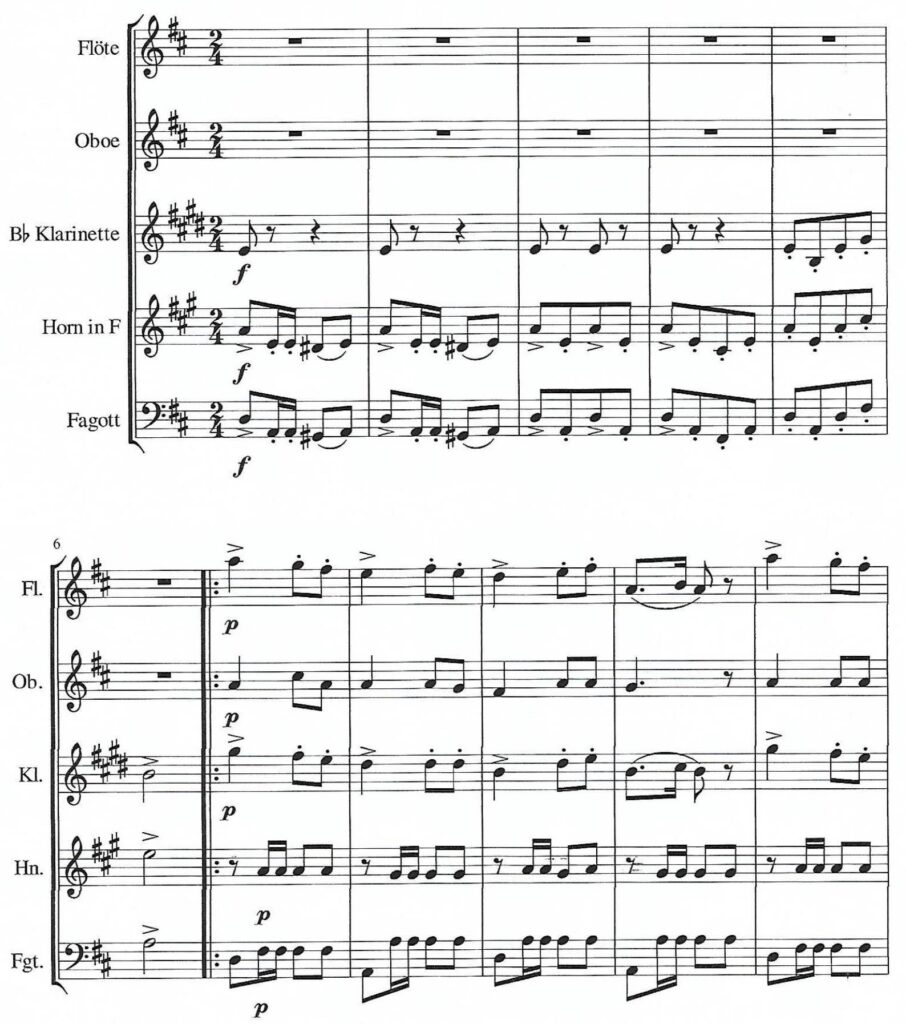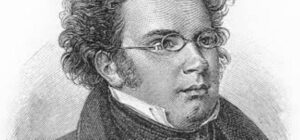Franz Schubert (1797-1828) Militär-Marsch No.1 / D 733 Marche Militaire

Seit ältesten Zeiten war der Marsch allgemein ein ständiger Begleiter des öffentlichen Lebens ei- ner Gesellschaft. Selbst große Komponisten konnten sich der Faszination und Wirkung dieser Mu- sikgattung nicht entziehen. Franz Schubert hatte drei Militärmärsche komponiert, die allerdings nicht für Militärorchester sondern für zwei Klaviere gedacht waren. Die angenehm fließenden Me- lodien, umrahmt von signalartigen schmissigen Rufen, sowie die farbenreiche Harmonik sind Grund genug, diese Komposition in einer zeitgemäßen Instrumentation zu bringen.
Der erste der drei ist weitaus bekannter als die anderen. Es ist eine der berühmtesten Kompositio- nen Schuberts und wird oft einfach als Schuberts Marche Militaire bezeichnet. Es ist nicht sicher, wann die Marches Militaires geschrieben wurden: Manche bevorzugen 1818, aber einige 1822 oder 1824. Es ist bekannt, dass sie während Schuberts Aufenthalt im Sommerhaus des Grafen Johann Karl Esterházy im ungarischen Zseliz (heute Želiezovce in der Slowakei) entstanden sind. Dort hatte er eine Stelle als Musiklehrer bei den Töchtern des Grafen angenommen, und diese und ähnliche Werke wurden zu Lehrzwecken geschrieben. Die Marches militaires wurden 1826 von Anton Diabelli in Wien herausgegeben. Sie sind alle in Lied- Form, mit einem zentralen Trio, das zu einer Reprise des Hauptmarsches führt.

From the earliest times the march was a constant companion of the public life of a society. Even great composers could not escape the fascination and impact of this genre of music. Franz Schu- bert had composed three military marches, which, however, were not intended for military orches- tras but for two pianos. The pleasantly flowing melodies, framed by signal-like snappy calls, as well as the colorful harmony are reason enough to present this composition in a contemporary instru- mentation.
The first of the three is far more famous than the others. It is one of Schubert’s most famous com- positions, and it is often simply referred to as Schubert’s Marche militaire. It is not certain when the Marches militaires were written: some favour 1818 but others prefer 1822 or 1824. It is known that they were written during Schubert’s stay at Count Johann Karl Esterházy’s summer home in Zseliz in Hungary (this is now Želiezovce in Slovakia). He had accepted a job there as music teacher to the Count’s daughters, and these and similar works were written for instructional purposes. The Marches militaires were published in Vienna 1826 by Anton Diabelli. They are all in song-form, with a central trio leading to a reprise of the main march.
| sound sample / Tonbeispiel | score/parts PDF download: € 15,- | add to cart / in den Warenkorb |
